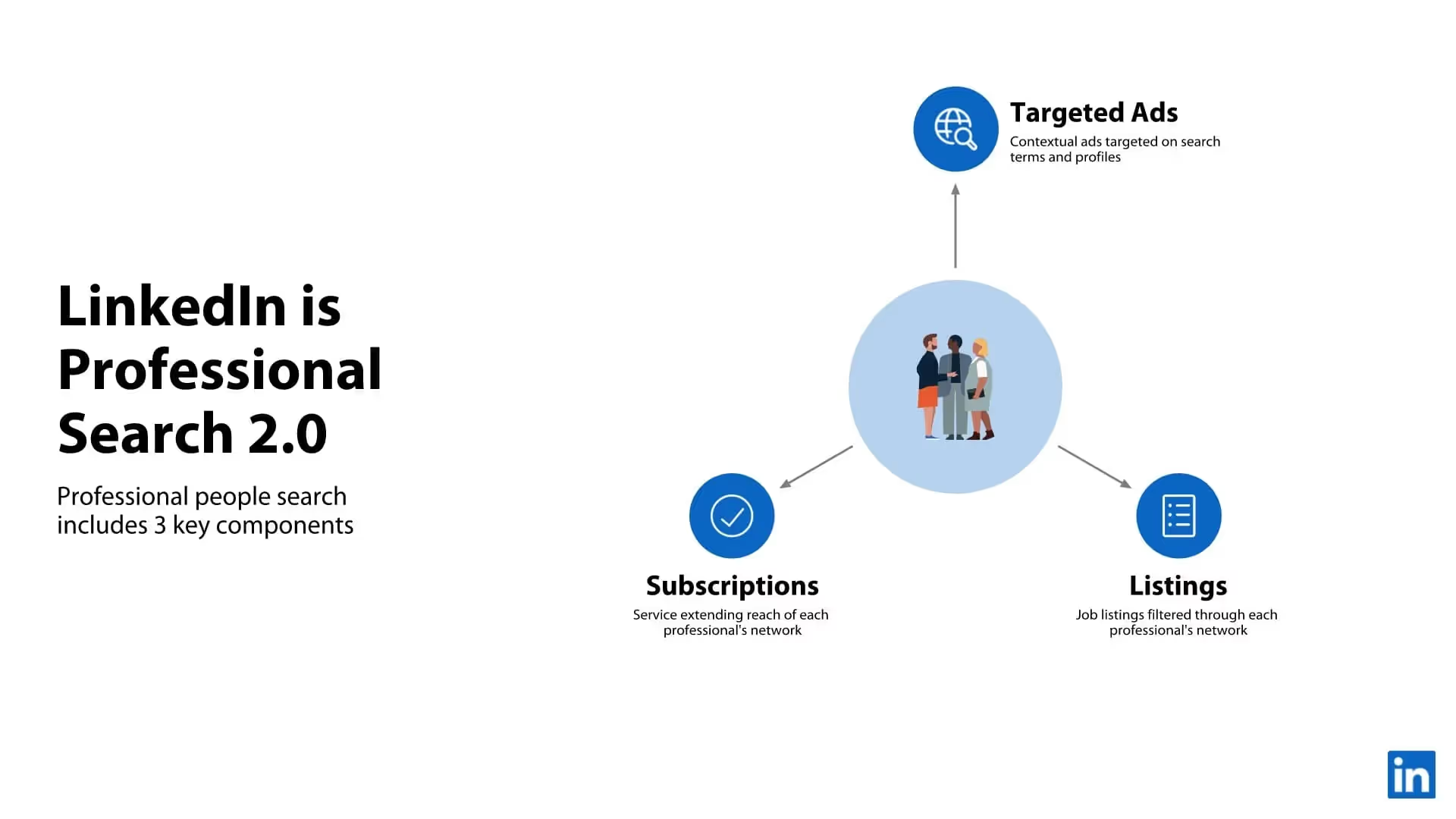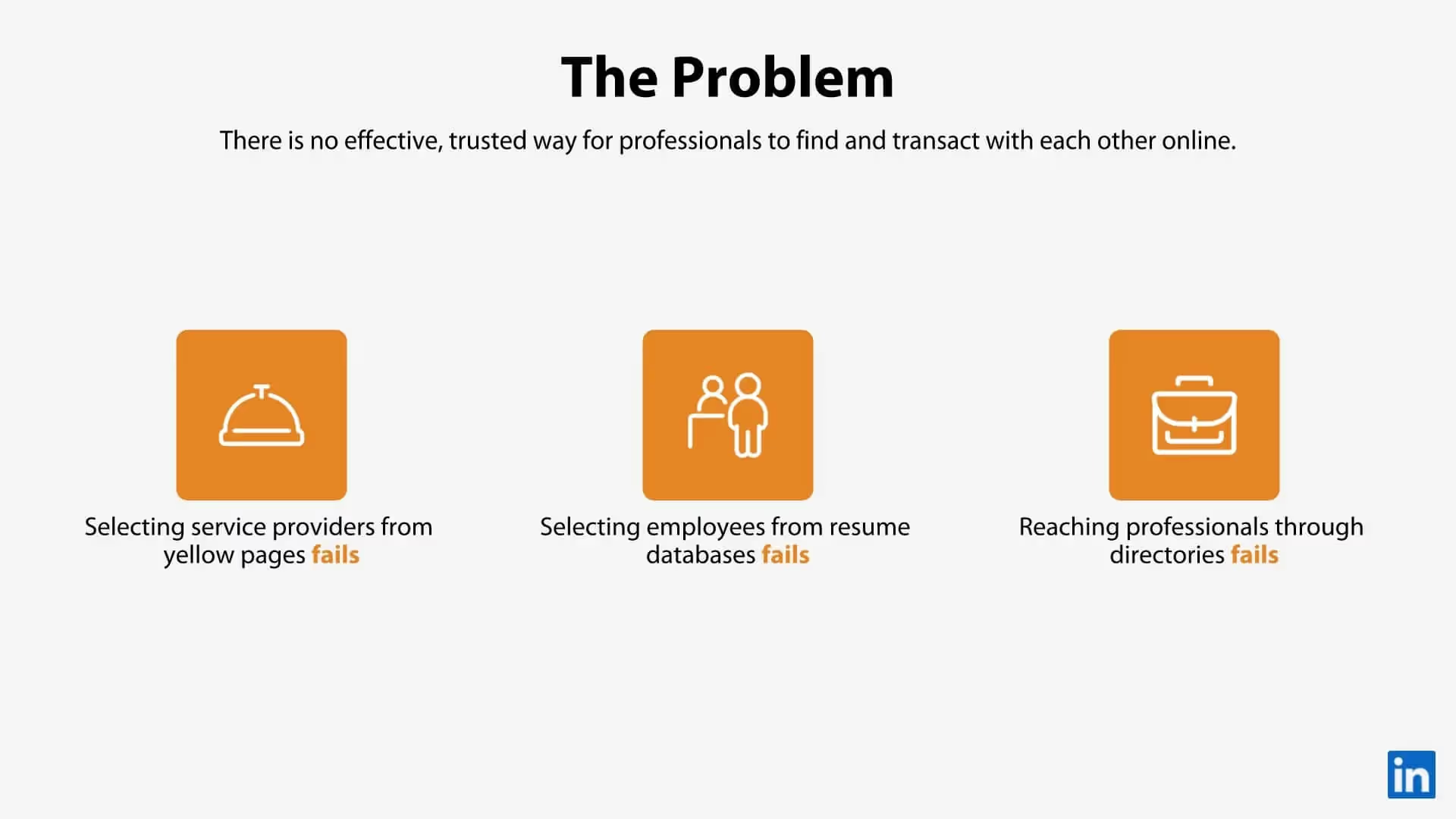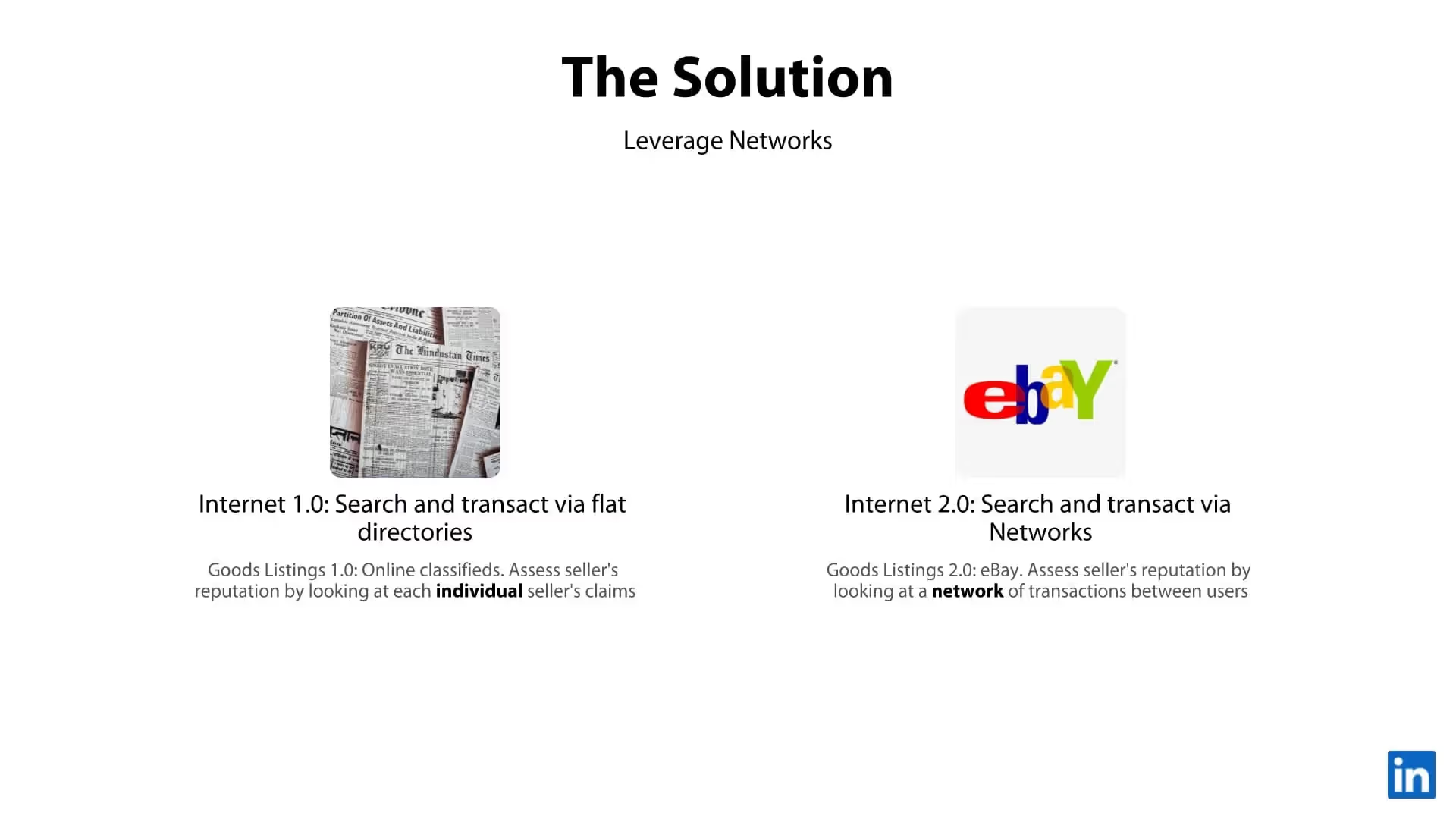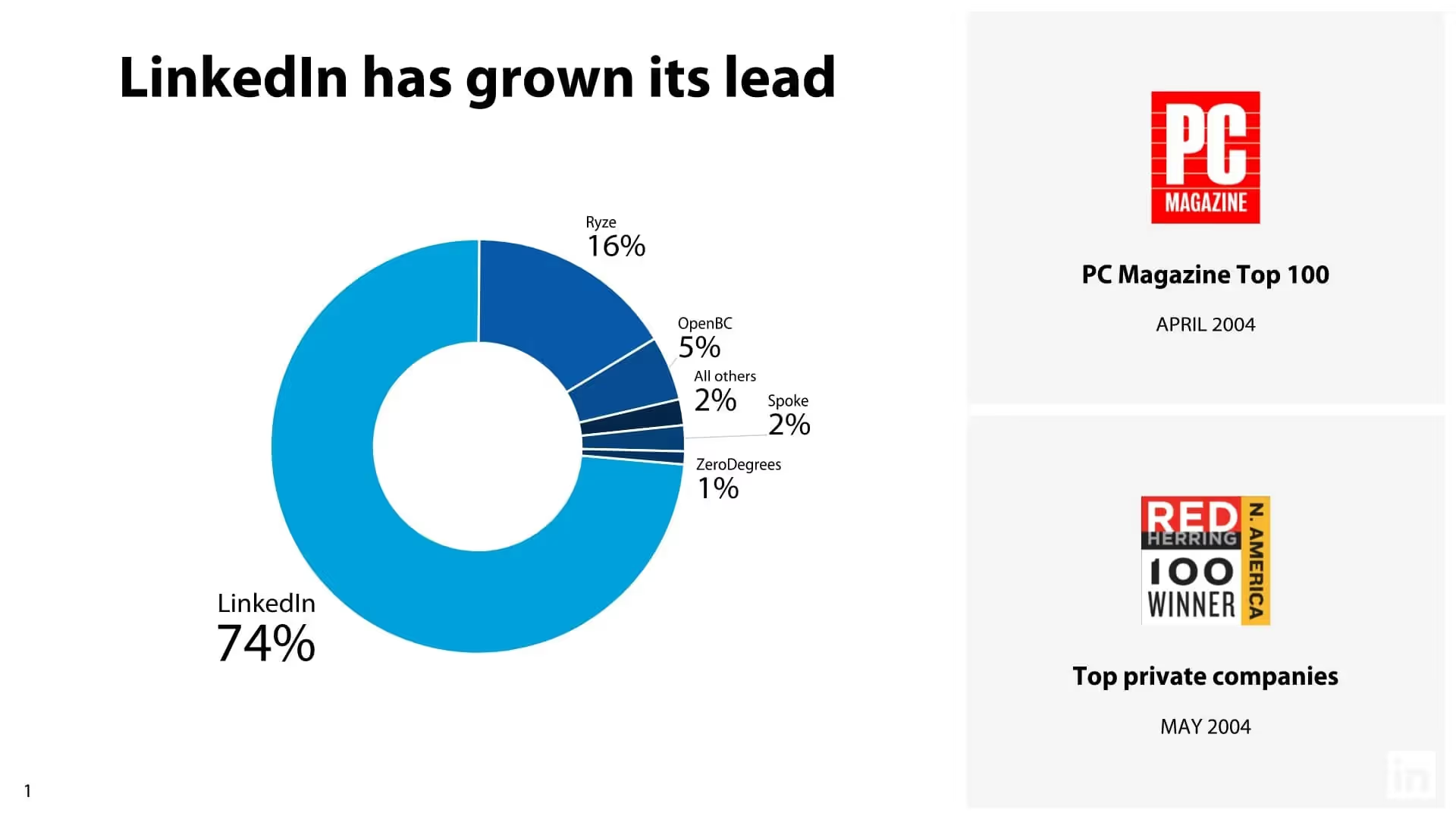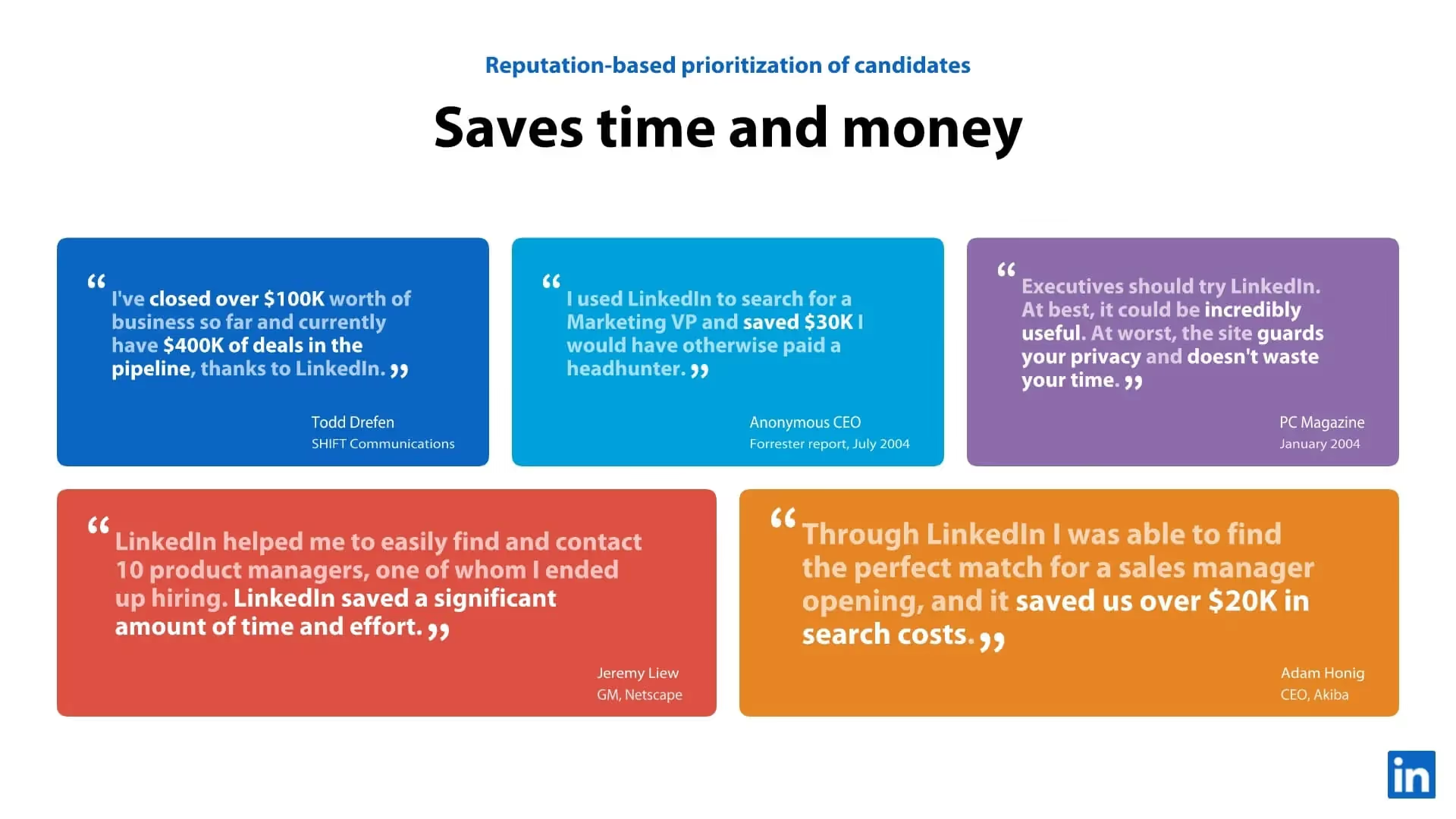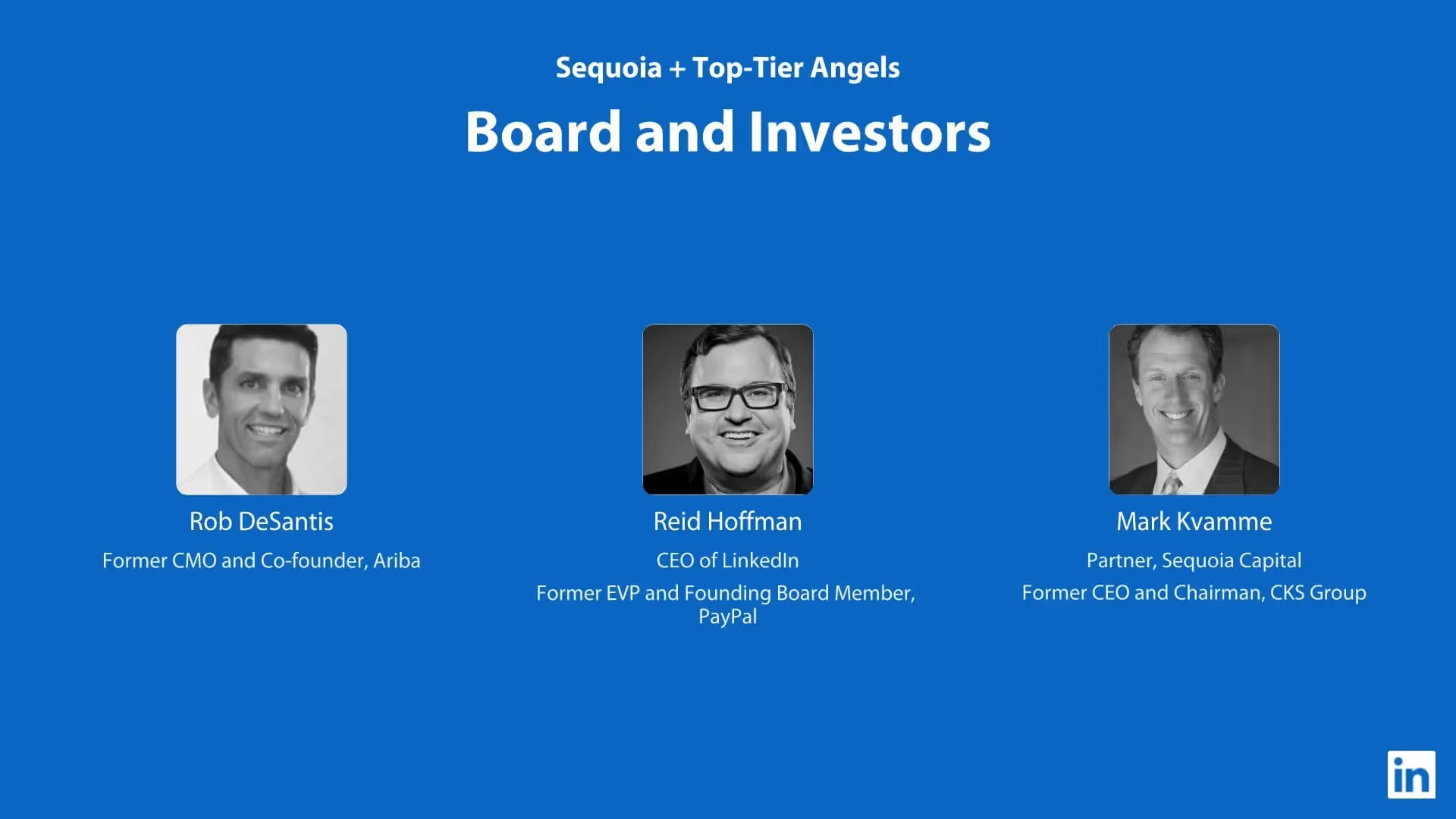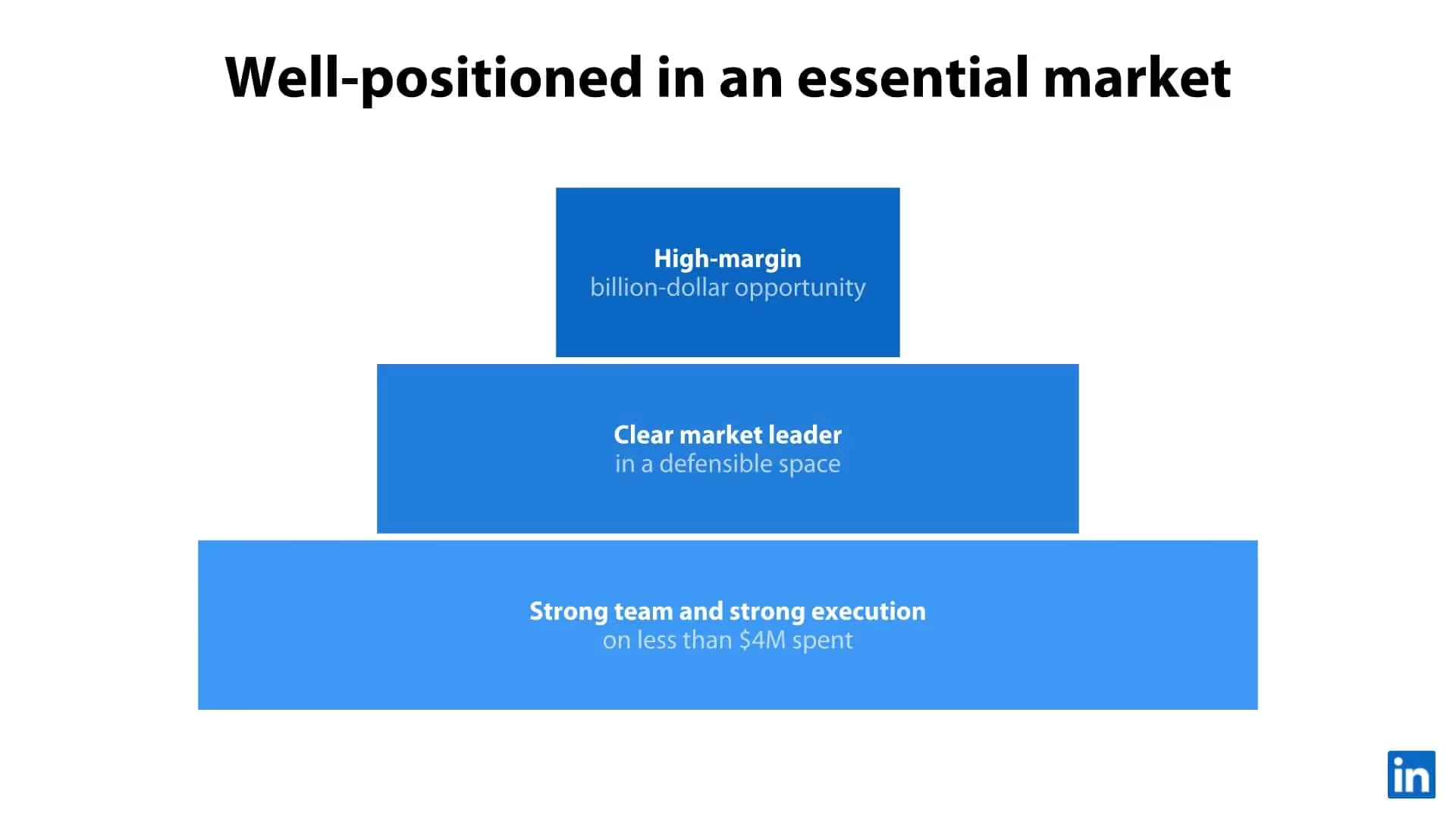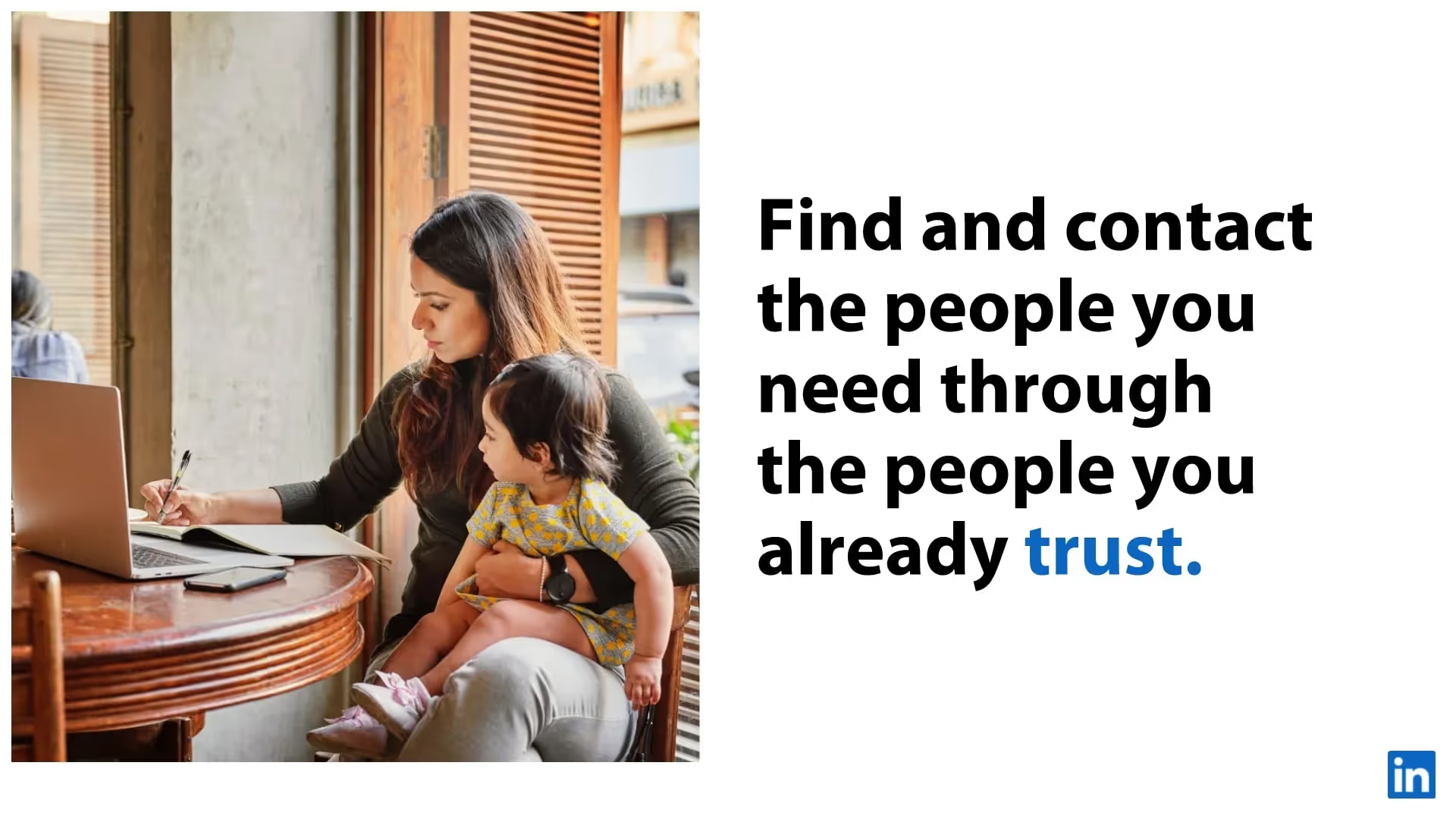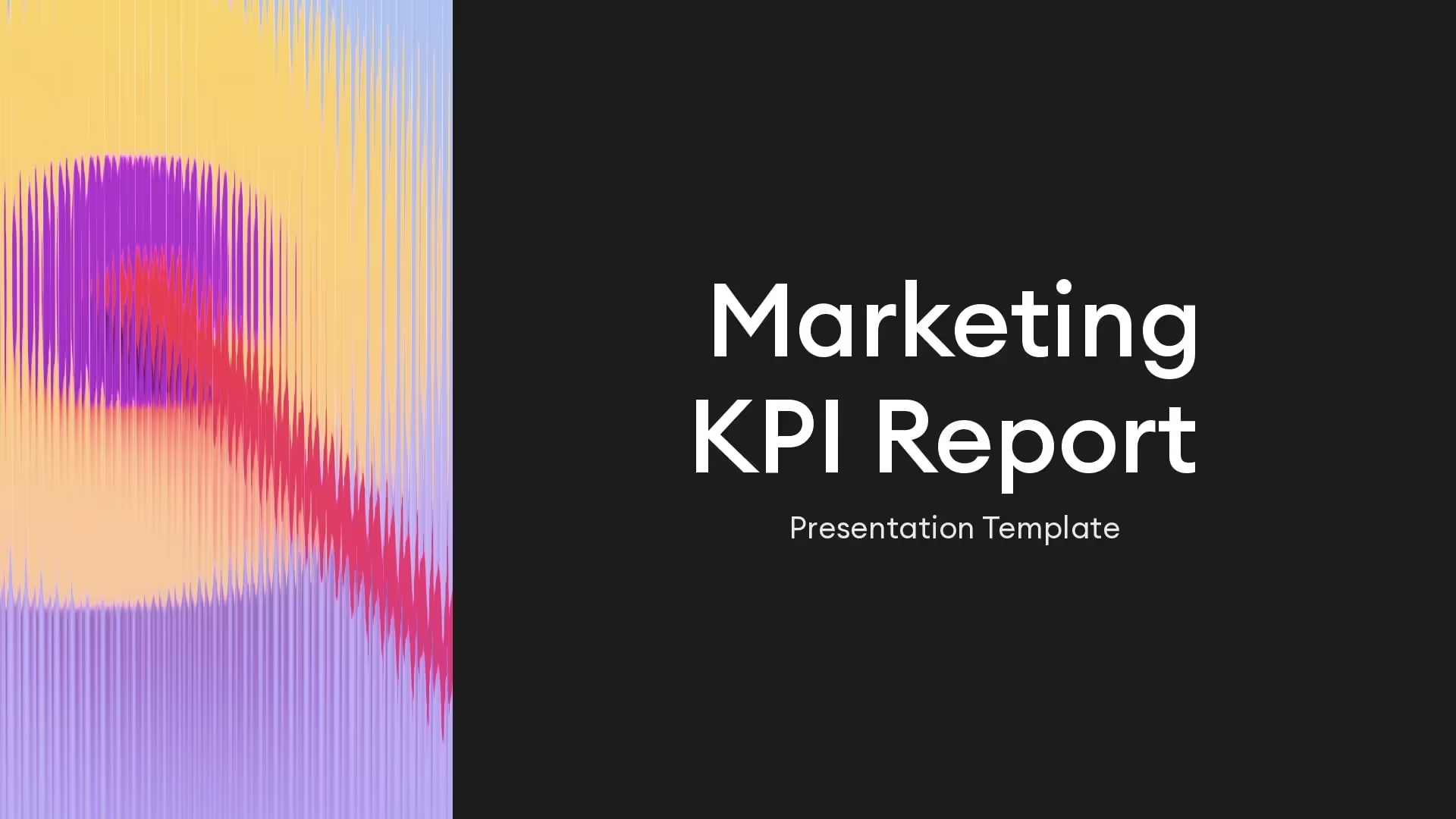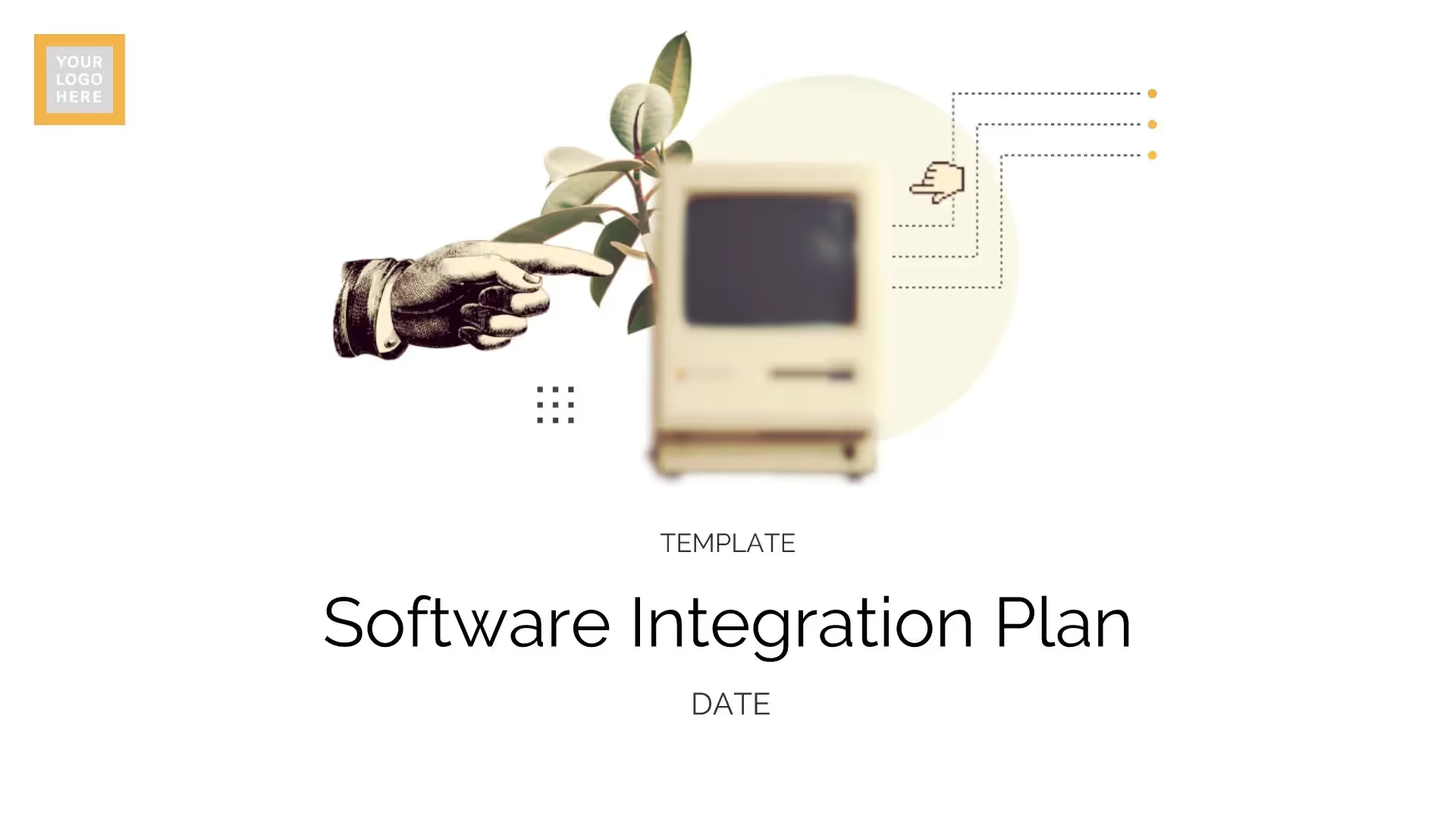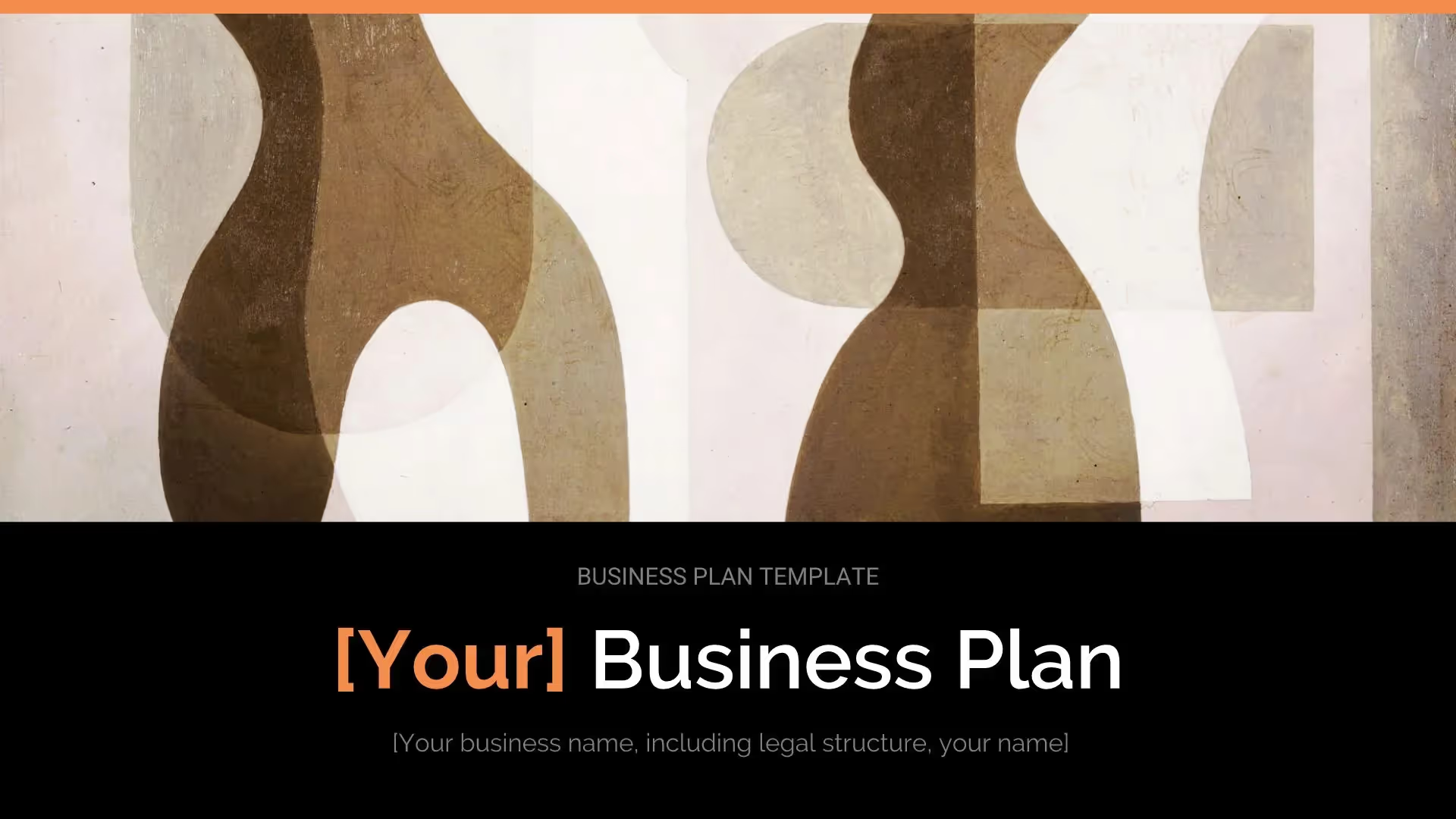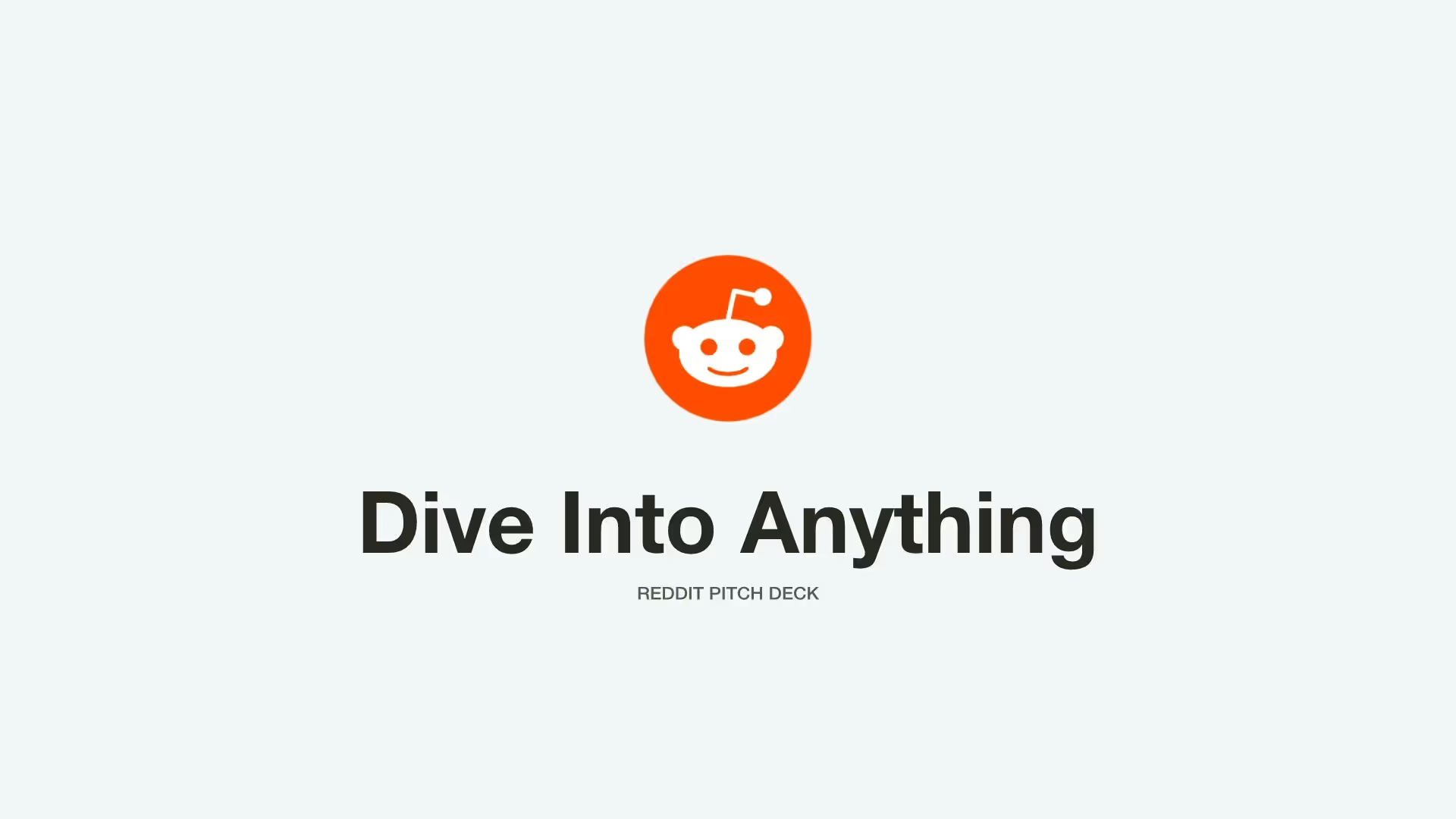Linkedin Pitch Deck
LinkedIn is the world's largest professional network with over 800 million members in more than 200 countries and territories worldwide.
Millions of professionals of all ages and backgrounds use LinkedIn to connect and network with businesses, colleagues, and peers. Their entire premise was built around the idea of creating economic equality in co-founder Reid Hoffman's living room in 2002. The company was officially launched in May 2003 and has grown substantially since, ultimately leading to their acquisition by Microsoft in December 2016.
LinkedIn has become one of the top social networking platforms to date, but they had to start somewhere. In 2003, LinkedIn landed a $4.7 million Series A funding deal from Sequoia Capital, and received a Series B round of $10 million from Greylock the following year.
We’re taking LinkedIn’s original pitch deck and giving it a Beautiful.ai spin.
Check Out the LinkedIn Pitch Deck Makeover in Beautiful.ai
A well-designed pitch deck template can seal the deal for the growth of your project or startup. Your goal is to grab the attention of potential investors and build excitement about your brand, the way LinkedIn’s presentation does, but also not get bogged down in too many details. Take a look at some of LinkedIn’s slides, like Market Opportunity, Data, and Projected Growth to get a sense for how to strike that balance.
Quick tips for creating a successful pitch deck
In addition to LinkedIn, we’ve taken cues from other top startups who’ve raised money from angel investors and VCs with effective pitch decks. Here are some tips to consider when customizing your own pitch deck template:
A pitch deck should be clear, compelling, and straightforward. About 10 to 20 slides should be enough to hit all the key points.
The overall layout of your slideshow is important, but each slide template also needs to make an impact. Capitalization, bolding key messages, and adding color will create attention on each individual slide.
Your presentation should support what you’re saying, not distract from it. Keep your design and text simple.
Charts, funnels, graphs, and images all add to the way your presentation is received. Visual aids make slides memorable and draw notice from your audience to important components.


